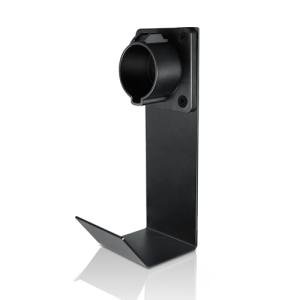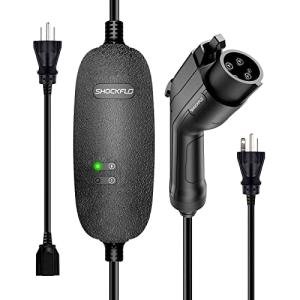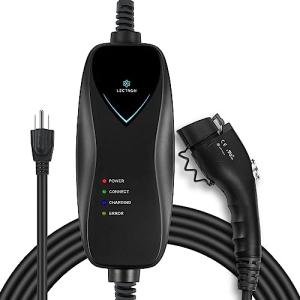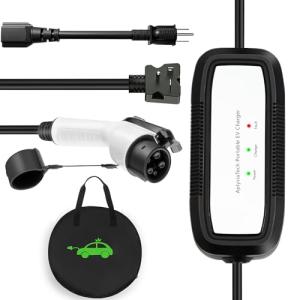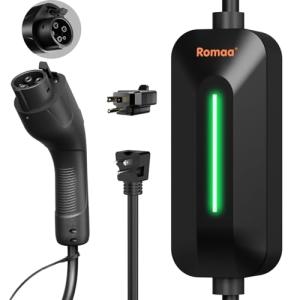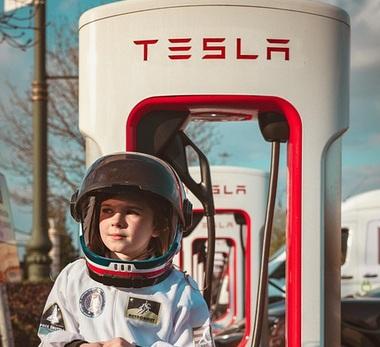When diving into the world of electric vehicles, it's super important to know the different types of chargers out there. Understanding Electric Vehicle Charger Compatibility helps you pick the right one for your car's needs. So, let’s break it down.
First up, we have Level 1 chargers. These are your everyday outlets—think the ones you plug your phone or laptop into. They give your EV a slow charge, usually around 2 to 5 miles of range per hour. Perfect for overnight charging at home!
Next, Level 2 chargers are a popular upgrade. These can usually add 10 to 60 miles of range per hour, depending on the charger and your car model. You’ll often find these at public charging stations, workplaces, or even in some homes. They’re the go-to for many EV owners looking for a bit more speed.
Finally, we have DC Fast Chargers. These are the speed demons of the bunch. They can provide up to 80% charge in about 30 minutes! Ideal for long road trips or quick stops. Just keep in mind that not all EVs are equipped to handle these chargers, so checking for Electric Vehicle Charger Compatibility is key.
Each charger type has its perks and finding the right one depends on your driving habits. Understanding the ins and outs of these options makes your EV experience so much smoother. Happy charging!
Finding the Right Connector
When it comes to electric vehicle charger compatibility, getting the right connector is super important. Not all chargers are created equal! Different electric vehicles (EVs) use different connector types, and knowing which one you need can save you a lot of hassle.
The most common connectors include J1772, CCS, and CHAdeMO. The J1772 is your go-to for Level 2 charging and is widely used in most EVs like the Chevy Bolt and Nissan Leaf. If you’ve got a vehicle that supports fast charging, you’ll want to look for CCS, which fits cars like the BMW i3 and Ford Mustang Mach-E. On the flip side, CHAdeMO is a bit less common but still seen in vehicles like the Nissan Leaf and Mitsubishis. Knowing your vehicle's connector type will help you choose the right charger.
Then there’s the option of adapters. If you find a charger you absolutely love, check if there’s an adapter available for your vehicle’s connector type. This way, you can use your favorite charger without worrying about compatibility issues. Just keep in mind that not all adapters are created equally; some may not support fast charging, which could slow you down.
In the end, it's all about knowing what your electric vehicle needs. Take the time to research your specific model and the connectors it supports. With a little prep work, you’ll feel confident picking out the right charger that ensures optimal electric vehicle charger compatibility for your driving needs!
LECTRON J1772 EV Charger Plug and Hook Combo
Experience hassle-free charging with a smart design that keeps your charger organized and ready to go
Product information
$18.99
Product Review Score
4.62 out of 5 stars
19 reviewsProduct links
Home Charging Solutions
When it comes to owning an electric vehicle (EV), having a reliable home charging solution is super important. You want something that fits your lifestyle and keeps your car charged without a hassle. Electric Vehicle Charger Compatibility is key here, ensuring you choose the right charger that works smoothly with your car.
There are different types of home chargers out there, but most folks go for Level 1 or Level 2 chargers. Level 1 chargers use a standard outlet and are the simplest to set up. They’re great if you have lots of time to charge overnight. On the flip side, Level 2 chargers offer faster charging and are perfect for those who need a quick boost during the day. Make sure to check your EV’s requirements before deciding which one to install.
Different EVs come with different plug types, so confirming Electric Vehicle Charger Compatibility is a must. Most electric cars use either a J1772 plug or a Tesla connector. If you’ve got a Tesla, you can use a special adapter to charge at J1772 stations. Doing a little research here can save you time and frustration when you’re trying to charge at home or on the road.
Installing a home charger isn’t overly complicated, but it’s always smart to hire a professional for the job. They’ll ensure everything’s done safely and up to code. Plus, if you consider future EV purchases, picking the right charger now means you might not have to change it later. It’s all about thinking ahead and picking the best option for you.
EVCARS 16A Portable Level 1 EV Charger 25Ft
Charge your electric vehicle effortlessly at home or on the go with this efficient and convenient portable charger
Product information
Product Review Score
4.43 out of 5 stars
225 reviewsProduct links
Public Charging Tips
Finding a public charging station can sometimes feel like a scavenger hunt, but a few tips can make it easier. First, always check your charging app before you head out. Apps like PlugShare or ChargePoint not only show you where the nearest stations are but also let you filter by charger types. This way, you can find a station that matches your vehicle's needs and ensure a smooth charging experience.
When you arrive at a charging station, look for stations that offer your preferred plug type. Understanding Electric Vehicle Charger Compatibility is key here. Different EVs use different plug types, like CCS, CHAdeMO, or Tesla connectors. Make sure you know what your vehicle uses to avoid any hiccups.
Don't forget to keep an eye on the station's charging speed. Some public chargers are faster than others. Look for DC fast chargers if you need to juice up quickly. These can give you a significant charge in a short time, perfect for making a pit stop on a road trip.
Lastly, be considerate of others. If you're done charging and your car is ready to go, unplug and move. This helps keep the stations available for other drivers. Plus, a little kindness goes a long way in the EV community. Happy charging!

